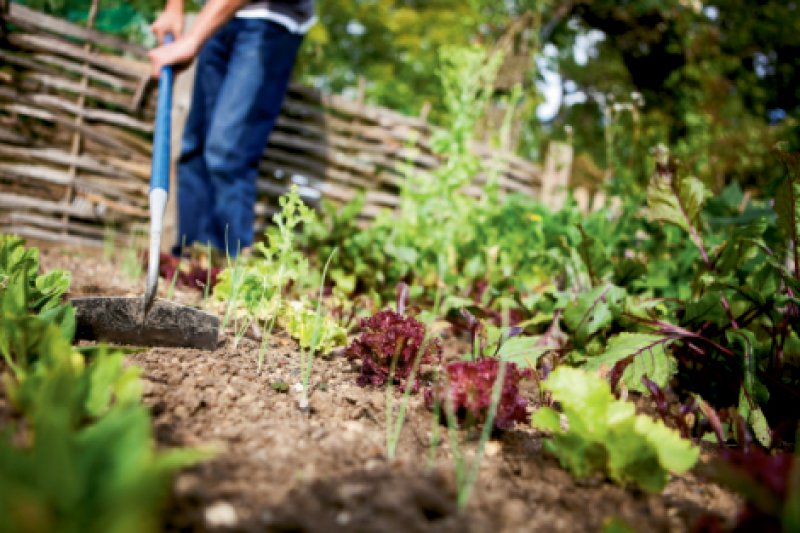Dig In
Dig In: Nurture a green thumb
Do you find yourself looking at friends and neighbors’ gardens with Envy? Even if they’re kind enough to give you boxes brimming with their surplus tomatoes, squash, lettuce, and other fresh goodies, it sure would be convenient to walk out your back door and harvest everything you need for a salad. Beyond the tasty benefits of tending your own patch, Frances Juhlin, instructor at John C. Campbell Folk School, describes gardening as a “therapeutic, meditative, and positive” activity. When you grow your own food, you’re in control. You’re ensuring that you’re eating the best possible, freshest produce available—garden patch to table—and the fact that you grew it is empowering for beginners, she says. Juhlin recommends starting with hearty vegetables like tomatoes, peppers, squash, cucumbers, and beans. If you purchase starter plants, some of the work has already been done for you, but Juhlin points out they are often raised in greenhouses, thus possibly subjected to pesticides, and are more costly. It’s also easier to find the exact variety of plant you want when starting with seeds. You’ll have to wait longer, but the payoff is a healthy harvest. Lettuce grow: It’s not too late to plant leafy greens and lettuces in early September. Put seedlings or starters in a fertile, loose soil bed or in a container large enough that the dirt won’t freeze. Water each day until fall temperatures drop, then only when needed. You can clip and eat leaves all winter. A Good Start: These hearty vegetables are ideal for novice gardeners because they’re easy to germinate and are less prone to pests. Lettuce, Tomatoes, Peppers, Squash, Cucumbers
Classes
Master Gardener Plant Clinic Fletcher September 11 & 25 The North Carolina State University Master Gardeners Program offers plant clinics to help people identify, diagnose, and solve problems in the garden. Participants are encouraged to bring samples of troubled plants or insects for help properly identifying the pest, disease, or other issues. WNC Agricultural Center, 570 Brevard Rd.; Saturday, 11 a.m.-2 p.m.; free; (828) 253-1691; www.ncagr.gov Creating Habitats for Pollinators Asheville September 14 Pollinating insect specialist Diane Almond explains how to set up a garden that will attract and allow bees and other beneficial insects to flourish. N.C. Arboretum, 100 Frederick Law Olmsted Way; Tuesday, noon-4 p.m.; $19 arboretum members, $23 nonmembers; (828) 665-2492; www.ncarboretum.org Taking and Understanding Soil Samples & Planning Next Year’s Garden Marble October 5 Soil samples can help you decide what crops are best for your garden, but first you need to know how to read a soil report. Find out how acidity, pH, and nutrients affect your crops, and how to prepare the ground for a new season of planting. Community Garden; Tuesday, 5:30 p.m.; free; (828) 837-2210; www.ces.ncsu.edu Organic Gardening for Beginners Brasstown April 17-23 Learn the basics of food self-sufficiency, including seed starting, soil building, pest control, variety selection, and more from an experienced gardener. Beginners are welcome. John C. Campbell Folk School, 1 Folk School Rd.; $546; 1-( 800) 365-5724; www.folkschool.org
